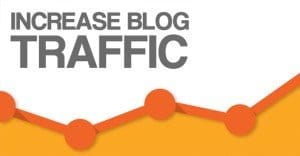15 Good Reasons to Start a Business Blog

“You need a blog, if you want to succeed.” Sound familiar? Is it true? There are great reasons to blog, but if you don’t do it properly, it can hurt you more than it can help. Just like any investment in your business, you need to stack the deck in your favor. This mostly involves following standard blogging rules and keeping it up even when it seems like it might not be bearing fruit. If you need more convincing, though, here are more reasons you should blog.
1. Your Blog is a Public Face for your Business
When a personal user blogs, it’s like an ongoing resume. It’s an illustration of your thoughts, your qualities and your preferences. When a business blogs, it works in the opposite direction. It’s a display of company culture. It’s a showcase of what matters, and how it matters to your business. It’s a demonstration of your technical and industrial proficiency. A business blog allows you to convince both possible employees and possible customers to take the next step, if they like what they see.
2. Your Blog is a Public Relations Platform
Companies can have stances on issues. Sometimes it’s a controversial stance and can win or lose you fans, depending on who subscribes to the same ideology. While we don’t recommend going out and posting about your ideas of religion and sexuality on your blog – at least, not if you’re not working in those industries – it’s still a good forum for opinions that humanize your brand. See, users like to buy from brands they trust, and it’s a lot harder to trust a faceless megacorporation or a bank than it is to trust a mom and pop store with a fun, cozy public space.
3. It’s Fuel for Social Media
Social media often goes hand in hand with the first line of this article. If you’re using social media, you may have encountered one big issue; you don’t know what to post about. Well, a blog solves that issue. It gives you a constant stream of content to share, it gives you a basis upon which you can share future content, and it gives you topics to spin off into stand-alone posts. A blog, basically, is fuel to keep your social engines burning.
4. It Drives Traffic
At the end of the day, it’s all about numbers. You want to increase your profits. To do that, you need more customers. To get more customers, you need to increase your click-through rates and your sheer number of visitors. To do those things, you need to put plans into action that attract and retain users. A blog is an excellent tool both for attracting users and for keeping them around. Blog posts convert users, or push them in the direction of pages that will convert them.
5. It Positions You as an Authority
Once again, it comes back to trust. Who would you rather trust with, say, a medical issue? Would you trust a guy you passed in the street, loitering in an alley? Or would you rather trust a doctor in his office? The blog is like your office; it’s a place that you use to instill a sense of authority and knowledge in your users.
6. It’s Residual Income
When you post an entry on your blog, it immediately begins working for you. It can bring in new users. It can convert users into customers. It can open up partnerships with others. And it never stops. A blog, as long as it’s up and active, is always working for you. You can generate leads and bring in profit while you’re on vacation, asleep or working on something else completely.
7. It’s Incredibly Cheap
How much do you estimate it would cost to run a blog? Chances are you’re quoting a high number. You already have hosting and a domain name, for your website. A blogging platform like WordPress is free. You don’t need to run specific blog-focused ads; they can work into your existing budget. If you write yourself or get an existing employee to write, you don’t need to buy content or hire writers. It’s all very close to free.
8. It Displays Reliability
Keeping to a regular blog schedule – even if you do so by writing 100 posts in a week and scheduling them out over three months – shows you’re reliable. You can start something and keep up with it. You can support the things you start. You’re informing customers that you’re ready and willing to put that reliability to work for them.
9. You Learn and Improve
Blogging is a very specific form of communication that requires thought. You can’t just slap a post together and expect it to perform. Blogging makes you take a step back and really think about how to best formulate your message, and it makes you go back over that message and make sure it works.
10. It has Infinite Growth Potential
Right now, if you were to put together a blog and try to sell it, you’d be laughed out of the market. You might get an office for $10, if you’re lucky. Dedicate the time and effort to building an audience, however, and you can sell that blog for mad money. Established, high-profile blogs have been sold for literal millions of dollars.
11. It Fosters Awareness
In order to become a successful blogger in your industry, you need to have a keen awareness of the rest of that industry. You need to know who else is blogging and what they’re blogging about. You need to be aware of modern developments. You need to know your industry inside and out, and that kind of awareness gives you insight into it that you can then leverage for other benefits throughout your business.
12. It Spreads Your Message
Today’s modern culture is all about consuming and sharing media for free online. When you post something interesting, hundreds, thousands or even millions of people can see it and share it. It’s free to them, but it’s not free to you; ad impressions alone can rack up thousands of dollars for that scale of exposure. Not to mention all of the leads generated through such a campaign.
13. Every Post is an Opportunity
From a simply numerical standpoint, look at your site. How many individual pages do you have? Each page is a chance for a user to link to you and share your business. Each page is a chance for a user to decide to convert. Each page is a chance to be picked up by Google’s search. With a blog, you’re creating more and more opportunities, and those opportunities compound as people stick around and explore.
14. Blogs can be Leveraged
When you’re blogging, you often dig deep into content. Yet the user’s attention span is short enough you can’t really dig too deep, or else you lose them. You can use these posts as a starting point for other forms of media, like videos or ebooks, which go into greater detail.
15. It Gives You Information
Blogging brings users to your yard, and you can measure their interest in your milkshake while they’re there. Every user is a data point, and you can use that data to optimize your sales funnel, your on-page SEO, your landing pages, your layout and everything else.
 ContentPowered.com
ContentPowered.com







